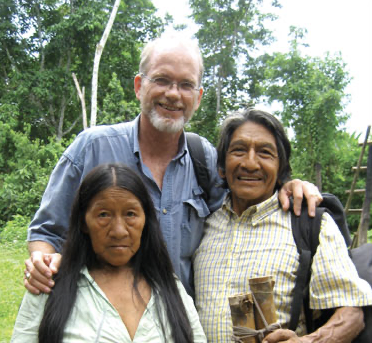Love Beyond Reason
“But love your enemies, and do good, and lend, expecting nothing in return, and your reward will be great, and you will be sons of the Most High, for He is kind to the ungrateful and the evil.”
—Luke 6:35
We live in a world shaped by self-centered, power-seeking influences (i.e. “Empire Thinking”). Worse still, our own hearts often lean toward retaliation, especially when wounded by a friend’s betrayal or a family member’s failure. Jesus, however, calls us to a radical, cross-shaped love that reaches even to our enemies—“Love your enemies… do good to those who hate you.” His words are not poetry. They are marching orders for those who belong to Christ’s Kingdom values.
But what does it look like when someone lives with the values of Christ’s Kingdom in real life? The story of Nate and Steve Saint gives us a rare and powerful answer.
When Love Is Stronger Than Spears
In early January 1956, missionary pilot Nate Saint—along with Jim Elliot and three others—landed on a remote sandbar deep in the Ecuadorian jungle. Their mission was clear, but it came with great risk: to bring the gospel of Jesus Christ to the Waodani, an isolated and violent tribe known for revenge killings. On January 8th, all five missionaries were speared to death.
Their martyrdom stunned the missionary world and devastated their families. But it was not the end of the story. In an act of stunning grace, Nate’s sister, Rachel Saint, and Jim’s widow, Elisabeth Elliot, chose to return—this time to live among the very people who had killed their loved ones. Through their faithful presence and witness, many Waodani came to faith in Christ.
One of them was Mincaye—the man who had murdered Nate Saint. But the story goes even deeper.
Nate’s son, Steve Saint, was just five years old when his father was killed. Several years later, in a moment that only the gospel could make possible, he was baptized by none other than Mincaye—the very man who had taken his father’s life… and who had since become his brother in Christ. Mincaye and Steve are pictured in the picture below.

The family of Nate Saint—and the families of the other missionaries—did not seek vengeance. They brought grace. Instead of bitterness, they chose forgiveness. Though the loss of Nate Saint was profound, they lived out the values of the Kingdom—loving enemies, extending mercy, and offering peace. That kind of gospel courage transformed many in the Waodani tribe and led to deep reconciliation.
Years later, Nate’s son, Steve, returned to the United States to complete his education. But the jungle never left his heart. As an adult, he returned—with his wife and children—to live among the Waodani and make disciples of Christ.
And in a breathtaking display of Luke 6 love, Steve Saint welcomed Mincaye—the man who killed his father—as family. He called him “grandfather” to his children. In public, Steve often introduced him by saying, “This is the man who killed my dad… and is now like a father to me.”
What Could Possibly Explain This?
Only one answer makes sense: Steve Saint had received that same kind of love from Jesus. God did not wait for us to become lovable before He loved us. Romans 5:8 reminds us, “While we were still sinners, Christ died for us.” And Jesus Himself tells us that to reflect the heart of God, we must “be merciful, even as your Father is merciful” (Luke 6:36).
In other words, the grace we’ve been given becomes the grace we extend. Steve Saint had every human reason to avoid the tribe, to stay angry, or to keep his children far from those who had taken his father’s life. But because he had tasted the mercy of God, he could walk in the mercy of God—even toward a former enemy.

Loving Like That Changes the World
This kind of love changes stories, legacies, and even nations. When Steve and Mincaye traveled together and spoke around the world, people wept—not only because it was a beautiful story, but because it was the gospel in motion. It was Luke 6, fleshed out in real life:
“Love your enemies”… “Do good to those who hurt you”… “Be merciful as your Father is merciful”
Jesus wasn’t offering a suggestion; these were His commands because He was describing what it looks like to belong to Him, to live according the values of His Kingdom. This is not soft love; it’s costly love. It’s love that remembers the cross, love that absorbs pain, love that lays down its life for the sake of redemption.
What About You?
Who has wronged you? Who has wounded your heart or taken something from you? The gospel calls us to do the impossible—until we remember that it’s exactly what God has already done for us. He loved us at our worst. And now He invites us to join Him in this kind of love. The Saints didn’t just share the gospel—they lived it. They didn’t just tell the story of reconciliation—they became part of it, and now we know better what Jesus’ teaching looks like when lived out in the real world.
May we do the same.
SEE Steve’s Saints’ missions work through ITEC
SEE Steve and families homecoming to Ecuador
SEE Last Trip Home
SEE an Overview of Operation Auca featuring Steven Curtis Chapman

